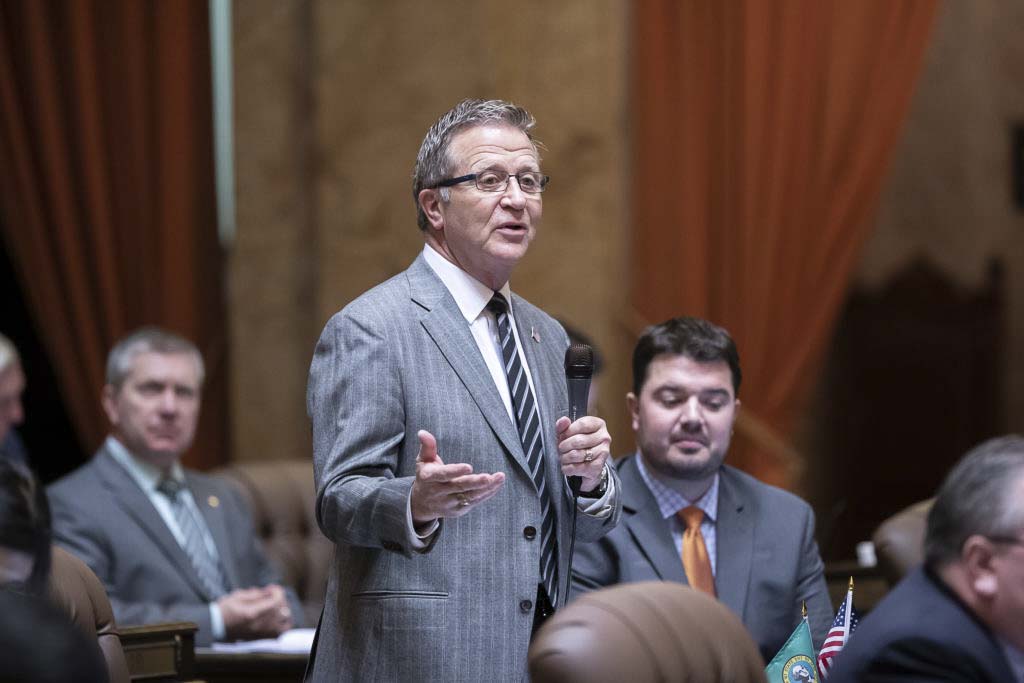House Bill 2714 is designed to support Washington’s small forest landowners
A bill sponsored by Rep. Larry Hoff to support Washington’s small forest landowners in the Forestry Riparian Easement Program (FREP) has been unanimously approved by the Washington State House of Representatives.

The FREP allows the state’s Department of Natural Resources (DNR) to purchase a 50-year easement from small forest landowners for up to 50 percent of the value of unharvested timber left standing along the banks of rivers and other sensitive aquatic areas. In the event the state develops methods, protocols and markets for valuing carbon, House Bill 2714 would provide an opportunity for small forest landowners to receive compensation for the value of the carbon stored in forest riparian easements.
“The Forestry Riparian Easement Program impacts the lives of many small forest landowners in Clark County and around the state,” said Hoff, R-Vancouver. “My bill would support these individuals by providing a way for them to receive compensation for the value of the carbon they’re sequestering in unharvested timber through the FREP program. I was pleased to see it receive unanimous support from my colleagues in the House, and look forward to advocating for its passage over in the Senate.”
House Bill 2714 would make the following changes to the FREP:
- Any state program that places a value on carbon must recognize and include the value of the carbon stored in forest riparian easements.
- For riparian easement applications received after the effective date of the bill, the DNR must calculate the amount of carbon stored in the qualifying timber according to established formulas.
- For all existing riparian easements, the landowner may market the carbon stored in the easement.
- If the state develops methods, protocols and markets for valuing carbon, future riparian easements must include the full value of carbon stored in all the qualifying timber, and must allow the landowner to market the value of the carbon separately.
House Bill 2714 is now in the Senate Agriculture, Water, Natural Resources and Parks Committee.
Information provided by Washington State House Republicans.




